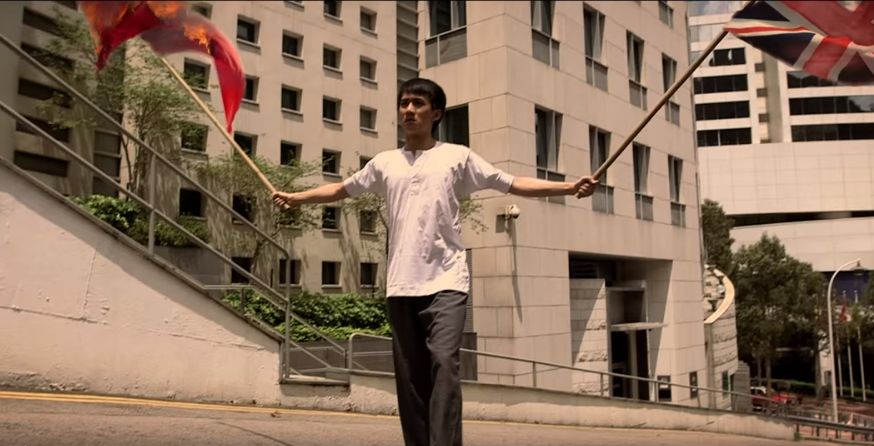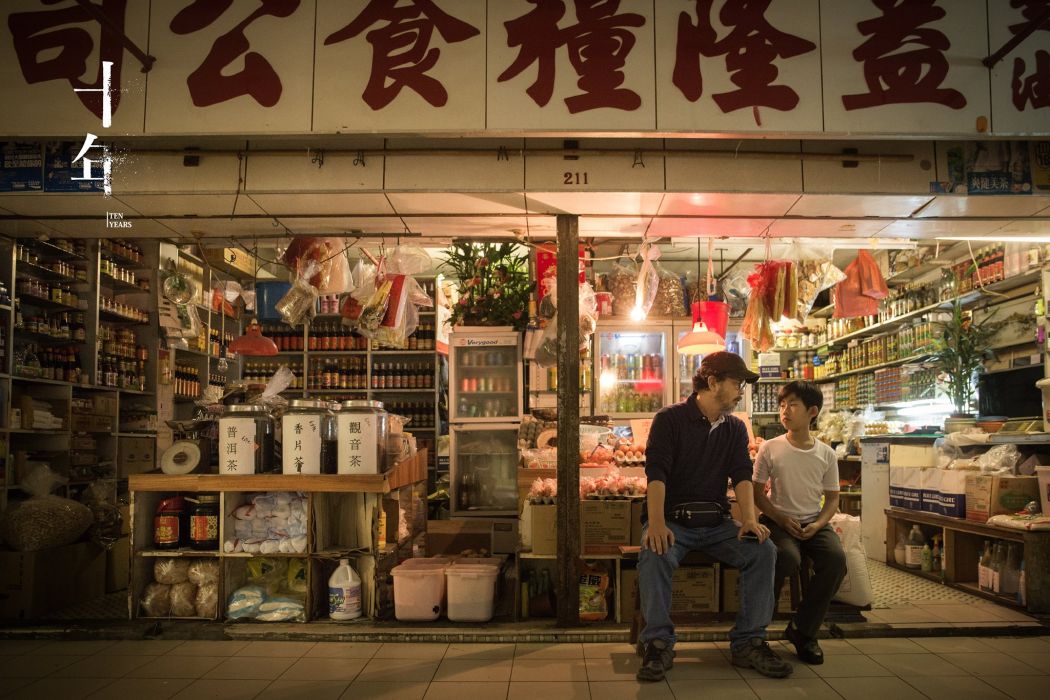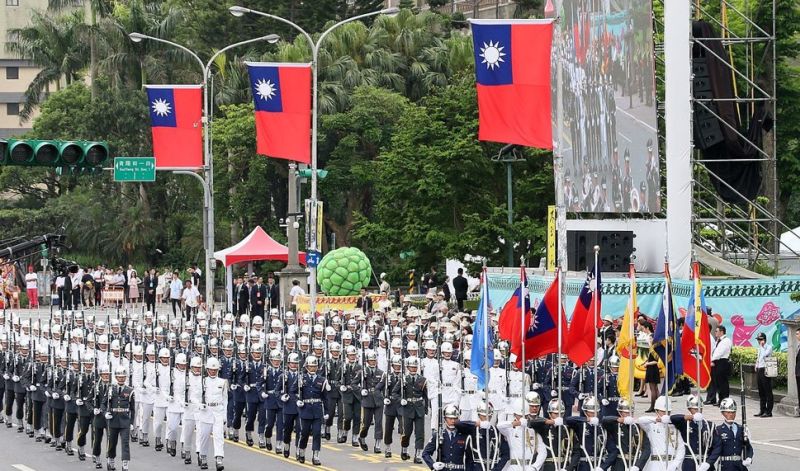By Karen Fang
In the two years since Hong Kong’s 2015 independent film Ten Years garnered international attention for its dystopian critique of mounting Chinese power, the implications of the movie’s chilling vision continues to grow.

The movie – which fell subject to an aggressive censorship and negative media campaign by the Chinese government – ultimately won the global public relations war when it was exhibited at dozens of city-wide free public screenings a few days before it was named the year’s Best Picture at the Hong Kong Film Awards. However, the young filmmakers behind the movie continue to suffer blowback from their association with the controversy.
Indeed, although the film briefly seemed to present a remarkable moment of resistance to Chinese power, current career opportunities for the Ten Years filmmakers are a cautionary tale consistent with the stories of repression, censorship and blacklisting depicted within the original film itself.
‘Self-immolated his own career’
Ten Years collaborator Kiwi Chow Kwun-wai contributed the quietly devastating “Self-Immolator” short to the movie – following an activist’s suicidal appeal for civic rights by setting oneself on fire. The director jokes that his participation in Ten Years has “self-immolated [his] own career.”
Such irony helps Chow laugh off suspicions that he and several other Ten Years contributors have been blacklisted, as was alleged late last year by pro-democracy tabloid Apple Daily.

He further notes that, since Ten Years’ release, fear of reprisal has kept all of the movie’s filmmakers from crossing the border into China. Chow clarifies that, although “people think it is quite dangerous to do this sort of thing,” for him he is less concerned about “danger to my life, but danger to my productions.”
At a time when China is now the world’s largest film market and co-productions between Hong Kong and mainland Chinese film companies are a key source of employment for Hong Kong and other Sinophone filmmakers and talent, the consequences of Ten Years’ notoriety has been significant.
In the case of Chow, who previously was well-positioned to transition to major studio productions after having directed a featurette on mainland-born martial arts superstar Jet Li, this has meant becoming resigned to only low-budget films rather than the larger productions funded by and aimed at the lucrative mainland market.
Marginalisation
Similarly, for Jevons Au, the oldest and most established of the five young filmmakers behind Ten Years, the professional consequences of appearing to be a politically provocative filmmaker are particularly apparent. Au is an accomplished scriptwriter and experienced assistant director well known in the commercial industry for his work with internationally acclaimed Hong Kong filmmaker and Cannes fixture, Johnnie To.

Unlike the other Ten Years filmmakers, Au was not thought to have been on the purported blacklist, presumably because of his existing industry clout. His industry ties, however, were not strong enough to protect him, as Au reports that projects on which he had already been in negotiations prior to Ten Years’ release abruptly dried up, with potential financers and collaborators no longer returning calls.
Importantly, this sense of marginalisation does not have to be explicitly political, but could also just reflect the general sidelining that is occurring as China’s influence over regional and global film production dictates what kinds of movies get made.
As Au’s own contribution to Ten Years portrays, Hong Kong since reunification has increasingly shifted towards Putonghua, rather than the Cantonese long dominant in Hong Kong and Hong Kong film. Thus Au’s Ten Years contribution, entitled “Dialect,” depicts a taxi driver who is unable to find fares due both to legislation and to customer distaste.
Au openly acknowledges the story’s inspiration from his own work as a screenwriter, who is uncomfortable speaking Putonghua and who feels unfamiliar with mainland interests and tastes. Confessing that he has begun to “lose confidence” in his scriptwriting, Au acknowledges that the local film industry’s shift towards to the mainland market might soon leave him limited only to the local Hong Kong-based stories he feels comfortable telling.

Such resignation felt by Ten Years filmmakers like Chow and Au is common in Hong Kong film these days.
With the local industry’s decline alongside China’s emergence as the world’s largest film market, the Hong Kong film industry has survived by splitting into a bipartite system in which some artists and filmmakers entrench themselves by fashioning big-budget spectacles destined for the Chinese market, while others remain committed to the genres and film styles more commonly favoured by local Hong Kong and global critical audiences.
Although some major industrial figures and auteurs like Peter Chan, Ann Hui and Johnnie To successfully negotiate both, the smaller arm of Hong Kong cinema has been notable for fostering a new, younger generation of filmmakers, often funded by charitable government or non-profit arts grants, whose work may be characterised by a gritty, realistic, and resolutely modest style that is vastly different from both contemporary mainland-targeted cinema and the hyperbolic energy of Hong Kong cinema’s past.
Ten Years itself is typical of this phenomenon, having started with seed money originating with a Christian missionary program, and the resourcefulness demonstrated by both the filmmakers and the popular response their film provoked offers a breath of hope for sustaining alternative film styles within a world film market increasingly concerned with conforming with China’s requirements for noncontroversial commercial taste.

Indeed, unlike the underground film scene in mainland China – which once fostered visionary world filmmakers such as Jia Zhangke but since 2012 has been subject to a wave of abruptly shuttered festivals – independent Hong Kong films like Ten Years signal new paths for cinematic production and reception beyond the commercial roots in which Hong Kong film was founded.
In fact, in addition to turning profitable during its brief run in the commercial theaters, Ten Years briefly became Hong Kong’s single-most downloaded item on iTunes.
Regional exploration
The current work of the Ten Years’ filmmakers is particularly intriguing in this light. Building upon their momentum, most of the original Ten Years team are now working with peers to launch similar omnibus projects in Taiwan, Thailand, Japan and Korea. (The exception is Jevons Au, currently shooting a grant-funded film about Hong Kong teens.)
While the Ten Years filmmakers are quick to explain that these specific locations are contingent upon artistic connections and are not intentionally political, it is significant that Taiwan and Japan both have increasingly contentious relationships with China. Thailand and Korea are also both dealing with instability caused by legitimacy problems surrounding their current national leaders.

What will the Ten Years project look like, once exported and adapted to these different regional spaces, who might also benefit from the Hong Kong movie’s model of political critique?
As Ten Years producer Andrew Choi wryly notes, already during the film’s reception in 2016 he had joked with American audiences and critics that “if Trump wins, [they] could do a Ten Years: US.” Thus tongue-in-cheek suggesting that the US ought to be as wary of its current government as Hong Kong, Choi reminds us how much a movie can teach audiences about issues impacting our daily lives.
No less seriously, the independent filmmakers express their unflagging commitment to artistic freedom, even in the face of the world’s superpowers and their correspondingly influential film industries. As noted by another one of the Ten Years contributors, Ng Kar-leung – who was one the movie’s original conceptualisers and also is one of the key figures behind the new “Ten Years International” project – “unfortunately, history always repeats itself.”
For Ng, however, Hong Kong’s cinema’s strength has always been its ability to make seemingly local stories communicate “honesty, commitment” and other values that are “quite human” and “universal.” For Ng, this means that precisely by being “reduced to the bare minimum” of production resources, the new era of Hong Kong cinema will be very different but possibly more influential.
As Ng concludes, “it is very fortunate that because of Ten Years we can get back to ground zero in making film.”
Karen Fang is an associate professor at the University of Houston, a film scholar and the author of Arresting Cinema: Surveillance in Hong Kong Film.
